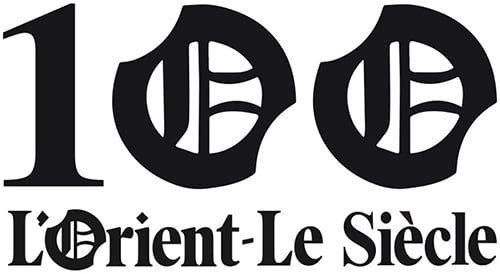Besma Belbedjaoui in front of one of their machines. Photo El Watan
We met Belbedjaoui at the site of her plant, about thirty kilometres outside of Constantine in the small district of Ibn Zyad. The plant is modest in size, but the desire to make sure it becomes a long-term and economically viable initiative is apparent in Belbedjaoui's enthusiasm and discourse. "We recycle the transparent plastics from water and juice bottles to give value back to urban and industrial waste. Our work consists of grinding, cleaning and drying the plastic to obtain granules of PET (polyethylene terephthalate), which serve to make textiles and non-woven fabrics, such as cotton or containers for eggs or washing liquid," Belbedjaoui explains.
Necessity is the mother of invention, and it is rightly of necessity that Belbedjaoui's project was born. "I wanted to embark on a project with both social and industrial implications, hence I chose recycling." Belbedjaoui states. Today, this young entrepreneur is immersed in the world of PETs. The granules of PET generated by the recycling process are reintroduced into the industrial circuit, with the aim of ridding the environment of a waste material that takes over 100 years to biodegrade. "This project was not an easy job. Three years passed between applying for funding from ANSEJ (the national youth employment agency), in 2010 and receiving the grant money" explains Belbedjaoui, who did not benefit from any favouritism on behalf of her funders. However, against all odds Belbedjaoui managed to bring her project to fruition. Her plant's process doesn't involve sorting or breaking down waste products, as her primary recycled materials are PET primaries, which can be recycled continuously without declining in quality. The PETs are ground down and reduced to small pieces, which results in plastics that are homogenous on a granular level. The plastic then passes through a cleaning process, where it is continuously stirred in water containing sodium hydroxide, in order to remove all impurities. The following stage is to dry the plastic in a centrifuge. Once cut, washed and dried, the plastic is stored in a large silo where it is mixed until homogenous. Granulation is the final step. Like all chemical processes, the end result creates waste, which needs to be disposed of with respect to the environment. In this case, sodium hydroxide (NaOh), which has a very high PH level. The best solution to this issue is to wait for the sodium hydroxide to settle; however this is very costly. At Plasticycle, they treat their wastewater with acid in order to return it to a neutral PH level, and no longer a pollutant, they can dispose of it with clean consciences.
The field-test
Based on their estimates, the plant should be able to produce 300 kg of PET granules per hour and 1.2 tonnes a day, however this goal is far out of reach. To have the machine running on a constant basis is currently impossible. The PETs, though in high demand, are not readily available. In a country where over 16 million tonnes of waste are produced domestically per year, somehow plastic appears to be a rare resource. "It's very difficult to get our hands on the necessary materials" states Belbedjaoui. The primary obstruction to the success of their business is, in effect, the collection of recyclable materials. Plasticycle works with transparent plastics, so almost exclusively, bottles, and the collection of these bottles is done solely by individuals on an informal basis. "We're at the mercy of waste collectors who decide and impose their own prices."
The future of the sector has been the subject of much speculation. The national agency for waste (AND) has established a waste provision to aid recyclers. They can stock up at waste depots (CETs) however the recyclers must bid on this waste, which is crippling the industry. "Waste should be provided for free and the recycler should be paid for their services." Belbedjaoui regretfully cites from a legal text pertaining to this issue. "I have needed, on multiple occasions though, to hold back on my work. Between the high price of recyclable plastic and the difficulty of reselling the final product, our finances are often in deficit." She admits. Much to her regret Belbedjaoui will need to let go two of her four employees, in order to keep the plant running. "Soon I'll change product, I'll have to abandon PETs for PPs (polypropene), plastic film, which has a greater market value." But Besma Belbedjaoui will fight another day.
Facebook: https://www.facebook.com/PlasticycleAlgerie/?fref=ts
Website: http://www.plasticycle-dz.com/

commentaires (0)
Commenter